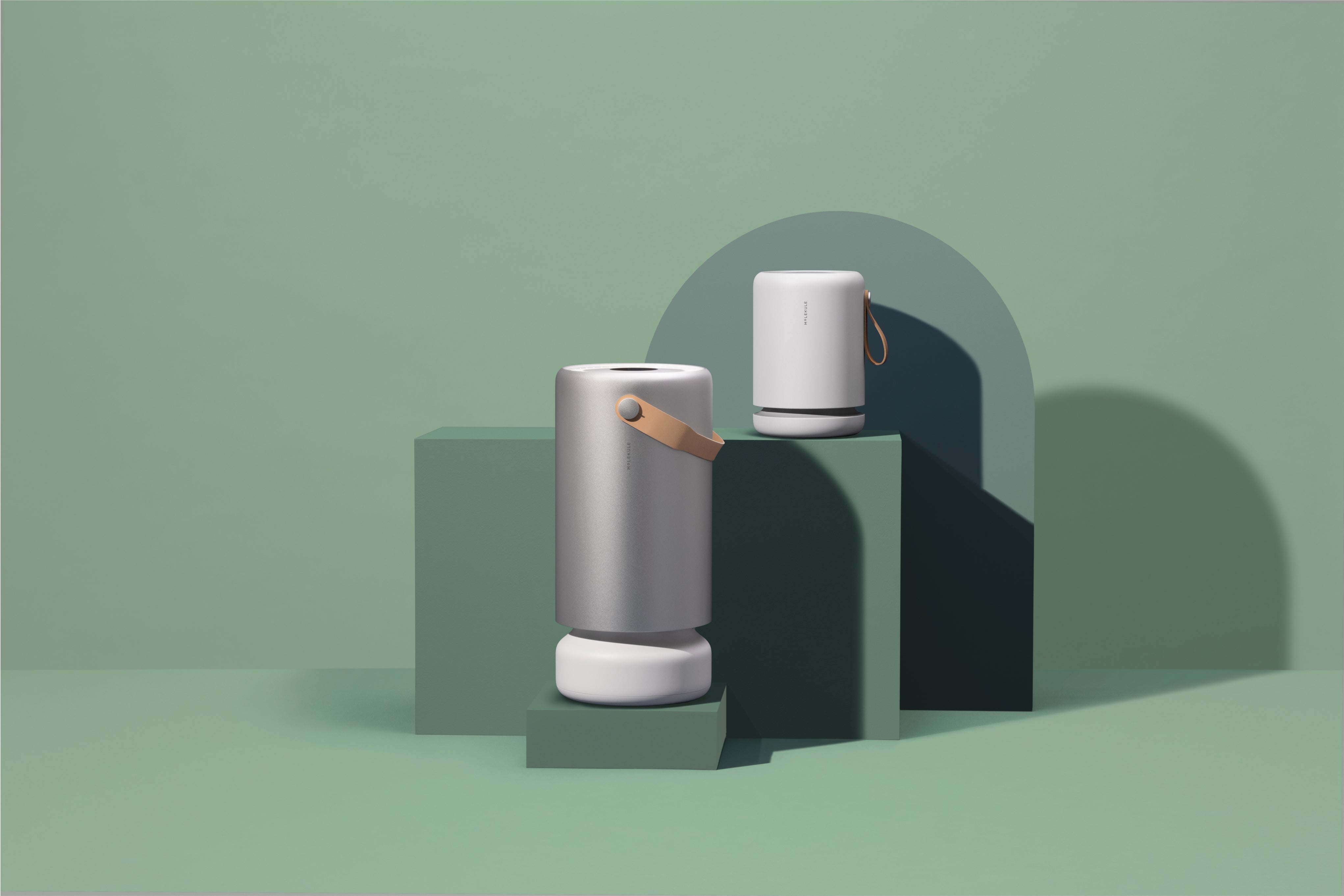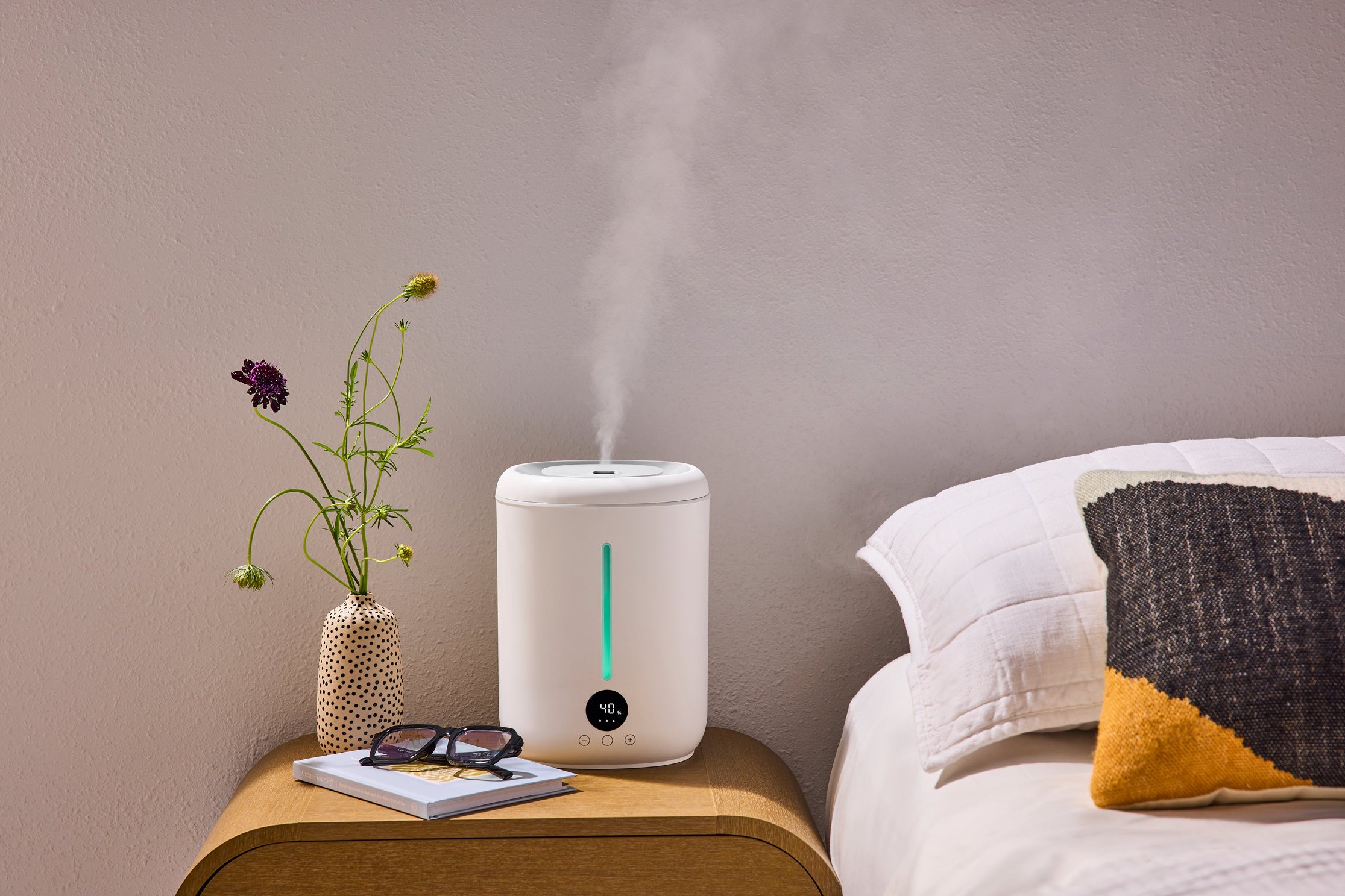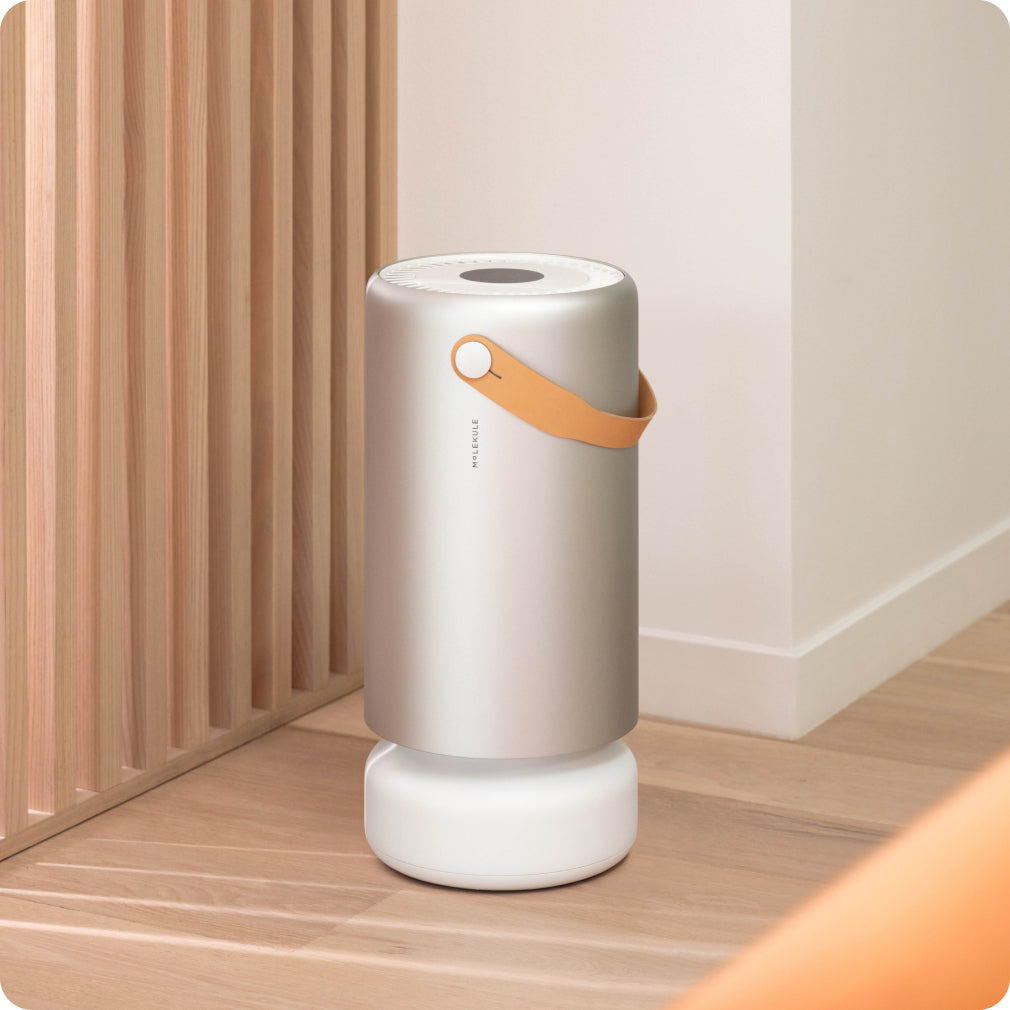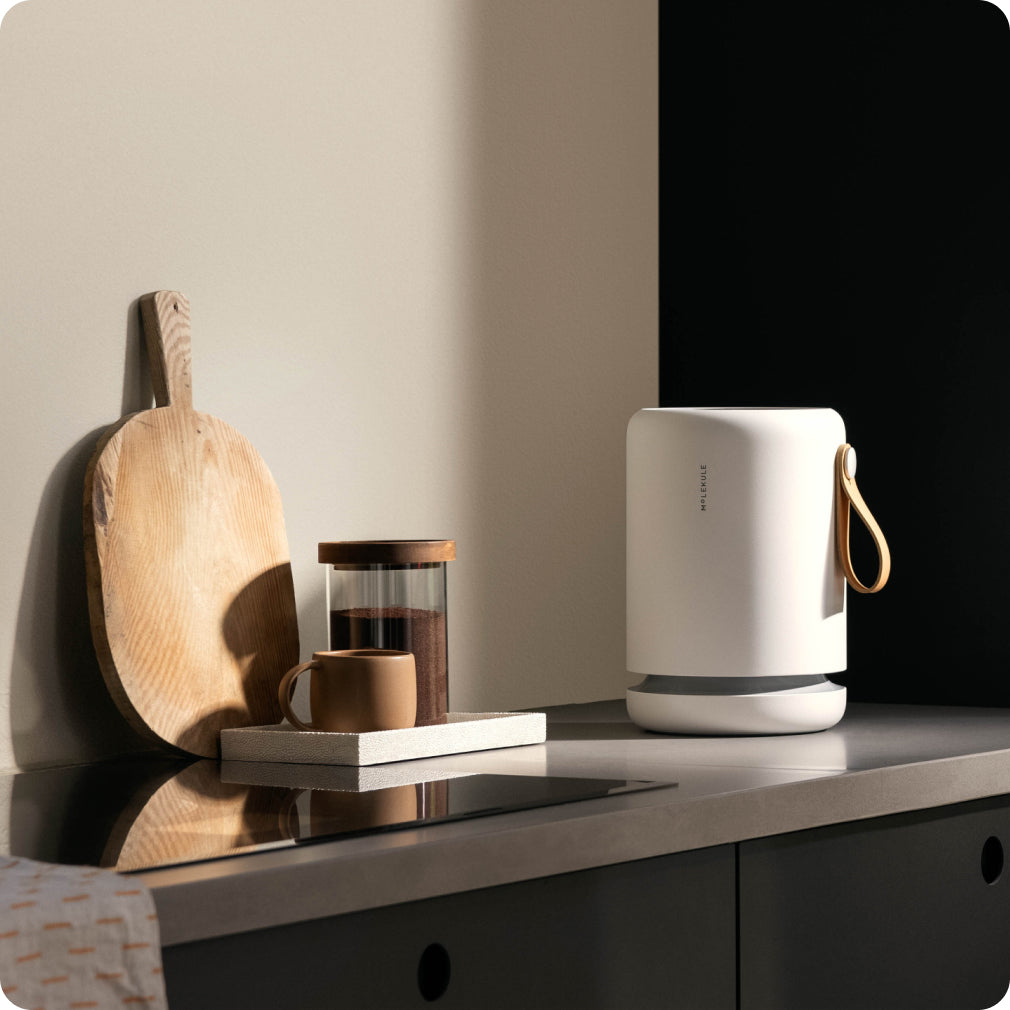If you’ve ever caught a strong, musty smell that reminds you of a damp basement or wet cardboard, you might be smelling black mold. This type of mold gives off a distinctive odor that often appears before you can see any growth. Recognizing the smell early can help you act fast to stop damage and protect your health. Cleaning helps, but air purification systems that destroy airborne mold spores and odor-causing compounds can make a big difference in preventing mold from spreading.
Key Takeaways
-
Distinctive Odor: Black mold smells musty, earthy, and similar to rotting wood, wet paper, or sweaty socks.
-
Early Warning: The smell often appears before you see visible growth.
-
Health Clues: Musty odors paired with allergy-like symptoms can signal mold exposure.
-
Growth Conditions: Mold thrives on damp materials like drywall and wood in warm, humid spaces.
-
Complete Solution: Air purification with Molekule’s PECO technology destroys mold spores and odor molecules instead of just trapping them.
What Black Mold Smells Like
Black mold usually has a strong, musty smell that’s similar to rotting wood, damp earth, or wet socks. It often smells earthy and stale, like something that’s been wet for too long. The odor can be especially noticeable in enclosed spaces such as basements, bathrooms, or behind walls where moisture builds up.
If you notice this smell and can’t find the source, it might be hidden mold. Because black mold can spread quickly and may cause health problems, it’s important to clean mold safely or call a professional if you think it’s growing in your home.
What Does Black Mold Smell Like in Walls?
People describe black mold in walls as:
-
A strong, musty odor like an old basement or damp towels
-
An earthy smell similar to rotting leaves or wet soil
-
A wet, stale scent like cardboard or paper left out in the rain
-
A sour or sweaty smell, like gym socks or musty clothes
The smell may fade when conditions dry out, but it quickly returns once moisture comes back. If you notice it lingering, it’s a sign that mold may be growing behind your walls, under your flooring, or inside your ventilation systems.
What Causes the Smell of Black Mold?
Black mold (Stachybotrys chartarum) grows on damp, cellulose-rich materials such as drywall, wallpaper, and wood. When it feeds on these surfaces, it releases compounds called microbial volatile organic compounds (mVOCs). These gases create that musty, earthy smell that can fill an entire room. The odor is strongest in enclosed, poorly ventilated spaces and usually gets worse when humidity is high.
How to Tell It Apart From Other Odors
Wondering if a spot is just mildew vs mold? Black mold’s smell is heavier and more persistent than typical mildew. Mildew has a lighter, damp scent that often goes away with cleaning. Black mold odors linger, spread through the air, and often intensify near water damage or leaks.
Other sources, like dirty laundry, old books, or HVAC buildup, can mimic the smell, but if the odor keeps returning after cleaning, mold is likely the cause.
Health Symptoms Linked to Mold Odors
If you smell mold and also notice symptoms such as sneezing, coughing, itchy eyes, or headaches, mold spores may already be affecting your air quality. People with allergies, asthma triggers, or weak immune systems are more sensitive and may experience fatigue, dizziness, or breathing problems. If these symptoms improve when you leave the space, mold exposure could be to blame.
Learn about the top 10 worst places to live if you have a mold allergy.
Where Black Mold Grows
Black mold thrives anywhere that stays damp for more than a day or two. Common areas include:
-
Bathrooms and basements with poor ventilation
-
Around leaky sinks, windows, or pipes
-
Behind wallpaper or drywall after water damage
-
Under carpet or flooring
-
Inside HVAC systems and air ducts
If you smell a musty odor but can’t see mold, follow your nose to the strongest spot and look for signs of moisture or discoloration.
Basement air purification systems can be particularly useful at regulating the air in lower floors, which are commonly prone to moisture.
Why Regular Cleaning Isn’t Enough
Surface cleaners and bleach may remove visible mold but often leave spores behind in porous materials like drywall or wood. These spores release more odor and can regrow quickly. Cleaning can also send spores into the air, spreading the problem throughout your home.
Air purification systems with molecular destruction technology, such as Molekule’s PECO, address what cleaning alone cannot. They destroy both mold spores and the mVOCs that cause musty odors, leaving the air cleaner and reducing the chance of regrowth.
Why Standard Air Purifiers Fall Short
Most HEPA filters only trap mold spores but cannot destroy them. Spores can continue producing odors while stuck in the filter, and some may escape during maintenance. HEPA filters also can’t capture gaseous compounds like mVOCs, so the musty smell often remains.
Molekule’s PECO technology eliminates these compounds at the molecular level, breaking them down into harmless water vapor and carbon dioxide. This makes it more effective for long-term mold and odor control.

Molekule Air Purifiers for Mold Odor Control
The Molekule Air Pro covers up to 1,000 square feet and destroys mold spores, allergens, and odors. It automatically adjusts to air quality levels and operates quietly, making it ideal for large rooms or open spaces.
The Molekule Air Mini+ is designed for smaller spaces up to 250 square feet, such as bedrooms, bathrooms, or basements. It offers the same PECO-HEPA technology in a compact size, ideal for targeted mold protection.
Both devices are FDA-cleared and proven to neutralize common household molds and their musty smells.
Preventing Black Mold and Musty Odors
Keep the following tips in mind to prevent black mold from intruding in your home:
-
Keep indoor humidity below 50% using dehumidifiers or air conditioning.
-
Fix leaks, spills, or condensation right away.
-
Run exhaust fans in bathrooms and kitchens.
-
Clean and dry areas within 24–48 hours after water exposure.
-
Use air purifiers for mold continuously in moisture-prone spaces.
When to Call a Professional
If the musty smell persists, the mold covers more than 10 square feet, or you suspect growth inside walls or ductwork, it’s time to call a professional. Mold inspectors can locate hidden contamination and safely remove it without spreading spores.
The Bottom Line
Black mold’s musty smell is more than an unpleasant odor—it’s an early warning sign that something damp and unhealthy is growing nearby. Acting quickly to find the source, clean affected areas, and purify your air helps protect your home and your health.
Frequently Asked Questions
What does black mold smell like compared to regular mold?
Black mold produces a stronger, more persistent musty odor described as rotting wood or wet cardboard, whereas regular mold has lighter, less intense earthy scents. Black mold's smell intensifies with humidity and lingers in enclosed spaces more noticeably than other mold types.
Can I smell black mold before I see it?
Yes, black mold's strong mVOC odor often becomes detectable before visible growth appears on surfaces. The distinctive musty smell serves as an early warning sign allowing intervention before extensive colonization occurs in hidden areas.
Is the smell of black mold dangerous to breathe?
The mVOCs creating black mold's characteristic odor can cause respiratory irritation, headaches, and nausea even without direct mold contact. People with allergies, asthma, or immune system compromises face higher risks from breathing mold odors containing volatile organic compounds.
How do I get rid of black mold smell permanently?
Permanent odor elimination requires addressing both the mold source through professional remediation and destroying airborne mVOCs through molecular-level air purification technology. Surface cleaning alone cannot eliminate smells coming from mold inside walls or producing ongoing volatile compounds.
Can air purifiers remove black mold smell?
Advanced air purifiers with molecular destruction technology like Molekule's PECO system can eliminate mVOC odor compounds at the chemical level. Traditional HEPA-only purifiers cannot remove gaseous odors, only solid particles, making them ineffective for complete smell elimination.
When should I call a professional for a black mold smell?
Contact professionals when musty odors persist despite cleaning, health symptoms accompany smells, odors return repeatedly after treatment, or you suspect hidden mold behind walls or in HVAC systems. Professional inspection and remediation prevent health risks and property damage from uncontrolled mold growth.







